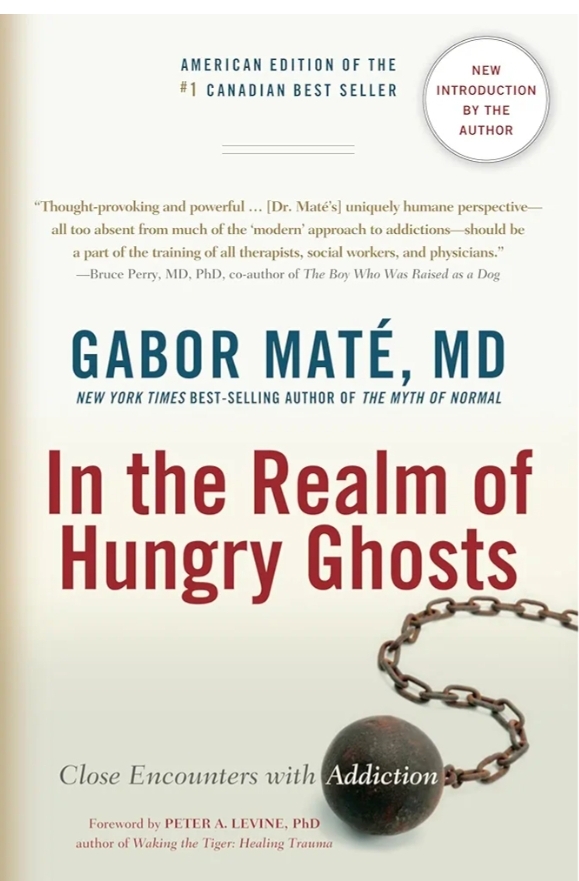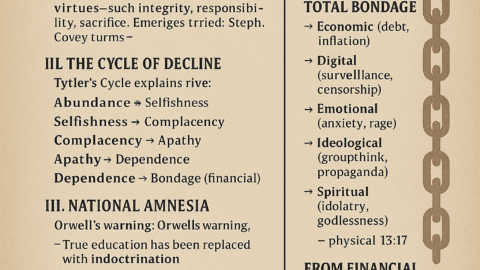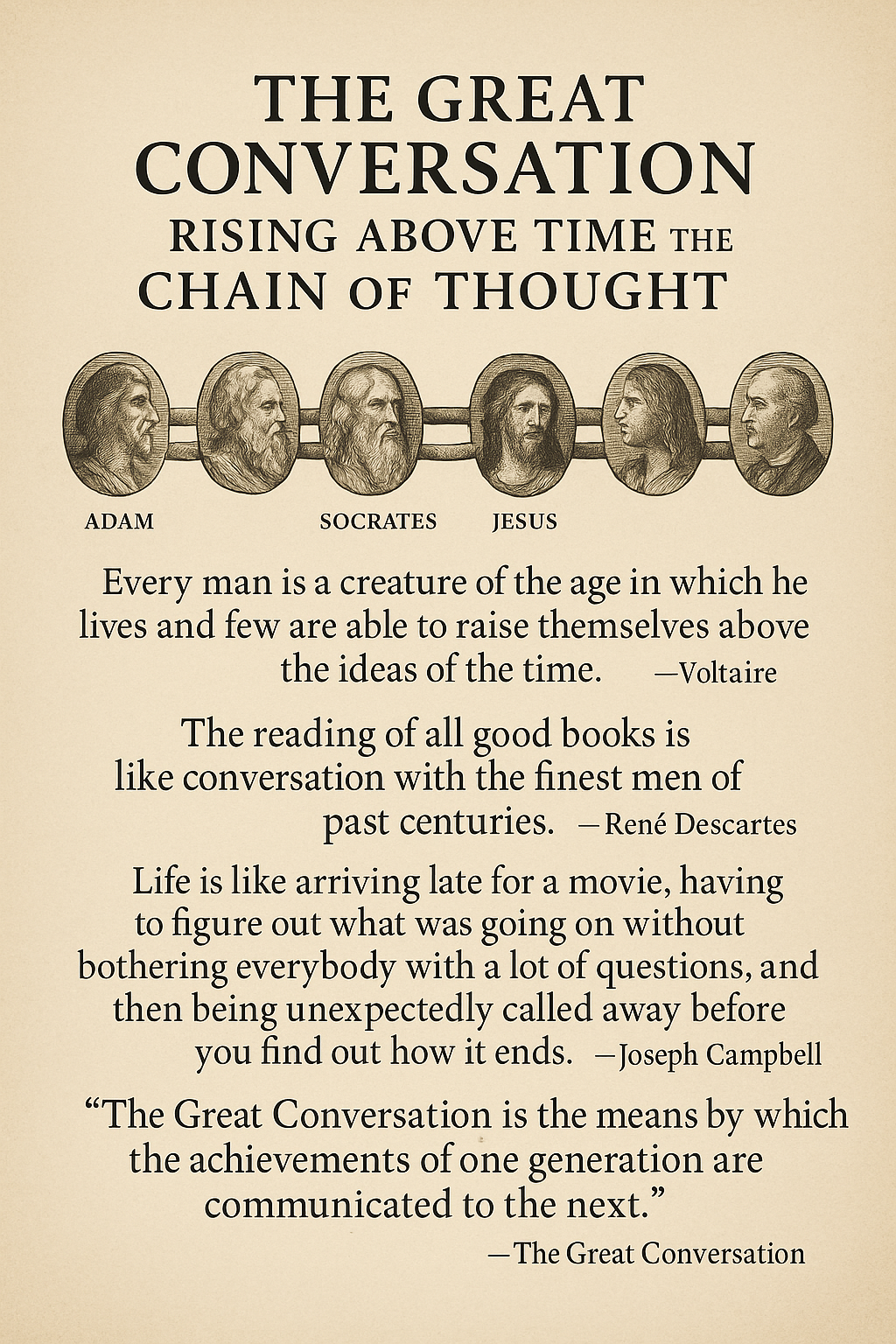“In the Realm of Hungry Ghosts: Close Encounters with Addiction” by Gabor Maté is a profound exploration of the nature of addiction and its roots in childhood trauma, emotional pain, and societal influences. Maté, a physician who has worked extensively with people suffering from addiction in Vancouver’s Downtown Eastside, provides both clinical insight and personal narratives to uncover the complex and interconnected causes of addiction. He draws on his experience, psychological theories, neurobiology, and compassion to argue for a more holistic, empathetic, and effective approach to treating addiction.
Detailed Summary:
1. The Title and Central Metaphor:
- The title, “In the Realm of Hungry Ghosts,” is derived from the Buddhist concept of the “hungry ghost realm,” a metaphorical plane where beings are depicted with large empty stomachs and tiny mouths, symbolizing insatiable needs and unfulfilled cravings. This metaphor illustrates the plight of addicts, who are constantly in search of satisfaction but are never truly fulfilled. Maté uses this metaphor to explain the inner life of addiction, marked by unending hunger and an inability to find contentment or peace.
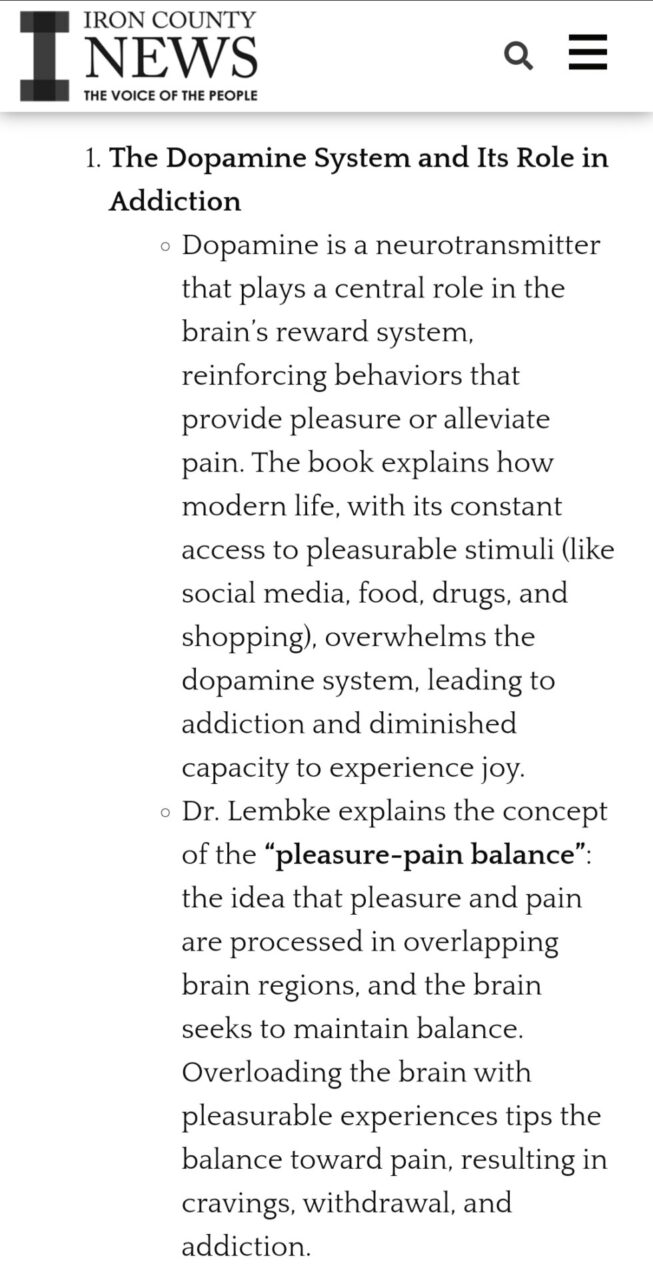
2. The Nature of Addiction:
- Definition and Scope:
- Maté defines addiction as any behavior that provides temporary relief or pleasure but has negative long-term consequences and a compulsive or continued use despite these consequences. This broad definition encompasses not just drug and alcohol addiction, but also other behaviors like workaholism, gambling, overeating, and internet addiction (Amazon Prime, shopping, porn, Only Fans, spending money, social media, and the list goes on and on).
- Addiction as a Response to Pain:
- Maté argues that addiction is not a choice or a moral failing but a coping mechanism for unbearable emotional pain, often rooted in trauma. He suggests that people turn to addictive substances or behaviors to escape the psychological pain that they cannot tolerate or manage in healthier ways.
3. Root Causes of Addiction:
- Childhood Trauma and Emotional Pain:
- Maté discusses how adverse childhood experiences (ACEs), such as neglect, abuse, and emotional abandonment, create a psychological environment conducive to addiction. He illustrates this with case studies from his own patients, showing how many addicts have a history of traumatic experiences.
- He emphasizes that the brain’s development, particularly in early childhood, is heavily influenced by the environment. Stress and trauma during formative years can alter brain circuitry, making individuals more susceptible to addiction.
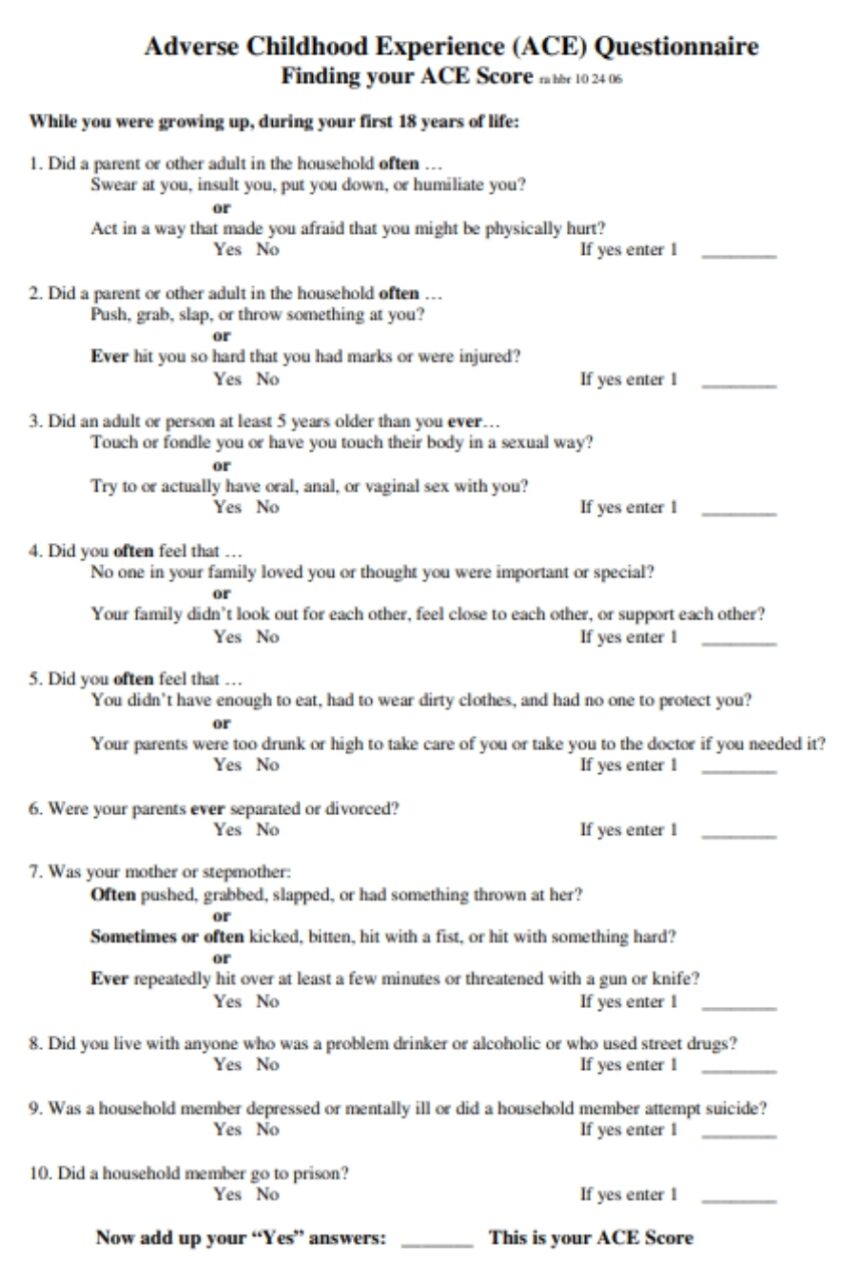
- Neurobiology of Addiction:
- The book delves into the neuroscience behind addiction, explaining how addictive substances affect the brain’s reward pathways, particularly dopamine and endorphins. He describes how trauma and stress impact the development of these pathways, creating a brain that is more vulnerable to addiction.
- Maté explains that addiction is essentially a brain disease—where the neurochemistry has been altered by genetics, early experiences, and repeated use of addictive substances. He argues that the addicted brain has an impaired ability to regulate stress, reward, and emotions.
4. The Role of Society and Environment:
- Social and Economic Factors:
- Maté highlights the role of socioeconomic conditions in fostering addiction, pointing out that poverty, lack of opportunity, marginalization, and discrimination contribute significantly to the prevalence of addiction. He criticizes societal structures that perpetuate inequality, which in turn creates environments where addiction thrives.
- He also critiques the “war on drugs” and the criminalization of addiction, arguing that these approaches are counterproductive and perpetuate a cycle of stigma and marginalization rather than addressing the root causes of addiction.
- Cultural and Familial Influences:
- The book explores how cultural factors, such as consumerism and societal expectations, create an environment that fosters addiction. Maté discusses how the constant pressure to achieve, accumulate wealth, and seek external validation can create feelings of inadequacy and stress, driving individuals toward addictive behaviors.
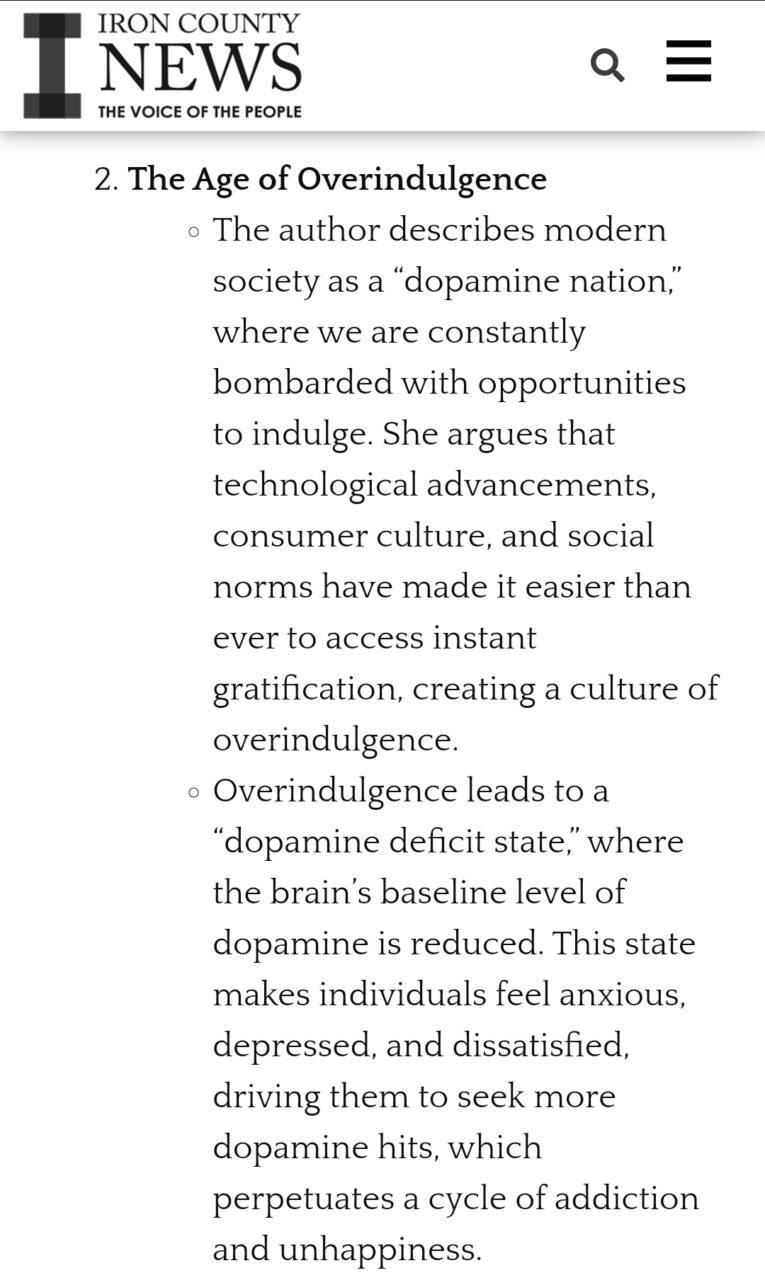
Overindulgence leads to a “dopamine deficit state,” which leads to additional cause and effect with people feeling anxious, depressed, and dissatisfied. It will also lead to isolation and loneliness which feeds into addictions. A chain reaction happens as a sequence of responses that are triggered by a reactive product or by-product, which in turn causes more reactions and deepens the addictions. As we seek more and more activities that emphasize overindulgence, we become a nation of addicts.
5. Case Studies and Personal Narratives:
- Stories from the Frontline:
- Maté provides numerous case studies and personal narratives from his patients, illustrating how addiction manifests in different individuals. These stories serve to humanize the addicts and emphasize that addiction is not just about the substance or behavior but about the human being struggling with pain and suffering.
- These case studies also highlight the diversity of addiction, showing that it affects people across all social strata, but is more prevalent among those with traumatic backgrounds and marginalized lives.
6. The Medical System and Addiction:
- Critique of Conventional Approaches:
- Maté critiques the traditional medical and psychiatric approaches to addiction, which often focus solely on the symptoms rather than addressing the underlying causes, such as trauma and emotional pain. He argues that the medicalization of addiction often ignores the holistic nature of the problem and fails to provide effective long-term solutions.
- He calls for a more compassionate, integrated approach that combines medical treatment with psychological support, social intervention, and a focus on healing trauma and rebuilding human connections.
7. Healing and Recovery:
- Approaches to Healing:
- Maté emphasizes the importance of connection, compassion, and understanding in the healing process. He advocates for therapies that focus on trauma recovery, such as EMDR (Eye Movement Desensitization and Reprocessing), mindfulness practices, and other therapeutic approaches that emphasize emotional healing.
- He suggests that addiction recovery requires addressing not just the physical addiction, but also the emotional and spiritual wounds that drive addictive behavior. This means creating environments where people feel safe, valued, and connected.
- Role of Compassion in Treatment:
- Compassion, both from society and self-compassion from the addict, is crucial for recovery. He encourages empathy towards those suffering from addiction and calls for an end to the judgment and stigma that often surround the topic.
- Maté argues that a compassionate approach requires understanding addiction as a response to deep pain and suffering, and therefore requires treating addicts with kindness, support, and patience.
8. Reflections on Personal Experience:
- Maté’s Own Reflections on Addiction:
- Throughout the book, Maté shares his own reflections and struggles with addictive behaviors, such as his compulsive buying of classical music CDs, providing an honest portrayal of how addiction can manifest even in seemingly benign ways. He uses his experiences to highlight that addiction exists on a spectrum and that many behaviors can be addictive, depending on their underlying motivations.
- This personal touch underscores the pervasive nature of addiction and reinforces the message that addiction is not a moral failing but a human experience shared across various forms and degrees.
9. Call for a New Understanding of Addiction:
- Need for a Paradigm Shift:
- Maté calls for a paradigm shift in how society understands and deals with addiction. He emphasizes that instead of focusing on punishment and suppression, there needs to be an emphasis on understanding the root causes—trauma, emotional pain, and social inequality.
- He argues that by addressing these underlying issues and fostering compassionate communities, societies can help reduce the prevalence of addiction and support individuals in their recovery journeys.
Gabor Maté frequently discusses how isolation and loneliness are pervasive in modern society and argues that these conditions are profoundly toxic to both mental and physical health. He views isolation and loneliness not only as psychological issues but also as major contributors to a range of illnesses and societal dysfunctions.
Why Isolation and Loneliness Are Toxic According to Gabor Maté:
- Biological Need for Connection:
- Maté argues that human beings are inherently social creatures who are biologically wired for connection, love, and community. From birth, humans depend on close connections for survival, learning, and emotional development. When these needs for connection are not met, it leads to profound distress and affects the body and mind.
- The absence of genuine connections triggers a stress response in the brain, releasing stress hormones like cortisol. Chronic exposure to such hormones can lead to numerous health problems, including weakened immunity, cardiovascular issues, anxiety, depression, and other chronic illnesses.
- Isolation as a Form of Trauma:
- Maté views isolation as a form of trauma because it disrupts the fundamental human need for belonging and safety. When individuals feel disconnected from others, it can cause psychological pain akin to physical pain, and this can trigger a cascade of stress responses in the body.
- He argues that being socially isolated or feeling lonely can re-traumatize individuals who have already experienced other forms of trauma. Isolation often exacerbates feelings of worthlessness, despair, and helplessness, deepening the cycle of trauma.
- Impact on Mental Health:
- In his books, Maté explains that loneliness is a significant risk factor for a range of mental health issues, including depression, anxiety, addiction, and even cognitive decline. Isolation often leaves individuals without the support and empathy needed to navigate life’s challenges, making them more vulnerable to mental health problems.
- He connects loneliness with addiction, suggesting that many people turn to substances or compulsive behaviors to fill the void left by a lack of meaningful human connection. This coping mechanism further deepens isolation, creating a vicious cycle.
- Cultural and Societal Factors:
- Maté argues that modern Western culture fosters isolation and loneliness through values such as individualism, competition, and consumerism. These values prioritize personal success and material wealth over community, cooperation, and genuine human connection.
- The fast pace of modern life, the decline of community and family structures, and the rise of digital technology contribute to a sense of disconnection. While digital platforms offer a sense of connection, Maté argues that these connections are often superficial and lack the depth required for true emotional support.
- Effects on Physical Health:
- According to Maté, chronic loneliness and social isolation are as dangerous to physical health as smoking, obesity, or lack of exercise. He emphasizes that social isolation increases inflammation, blood pressure, and other physiological stress responses that contribute to heart disease, stroke, and other life-threatening conditions.
- Research supports his view that people with strong social connections have a lower risk of mortality and that loneliness significantly increases the risk of death, even controlling for other factors.
- Healing through Connection:
- Maté emphasizes that healing from trauma, addiction, and chronic illness requires connection. He argues that individuals need to reconnect with themselves, others, and their communities to heal from the psychological and physiological effects of trauma and stress.
- He advocates for practices that foster genuine human connection, such as empathy, compassion, openness, and authenticity. For him, these practices help rebuild the emotional bonds that are essential for well-being.
Are Humans Conditioned Like Dogs?
Gabor Maté’s work consistently emphasizes that isolation and loneliness are deeply toxic because they undermine the fundamental human need for connection. He argues that to heal individually and as a society, we must recognize the importance of meaningful relationships, empathy, and community. Maté’s critique of modern culture and his advocacy for connection-based healing approaches highlight the critical role of human connection in maintaining mental, emotional, and physical health.
“In the Realm of Hungry Ghosts” is a deeply compassionate and insightful exploration of addiction. Maté challenges traditional perceptions and encourages readers to view addiction not as a moral or criminal issue, but as a public health crisis rooted in trauma, pain, and social dislocation. His call for a compassionate, trauma-informed approach to addiction emphasizes the need to address the deeper emotional and psychological wounds that fuel addictive behaviors. The book urges society to shift from judgment and punishment to understanding and healing, advocating for systemic change and more empathetic treatment of those struggling with addiction.
(1) Dopamine Nation: Finding Balance in the Age of Indulgence

